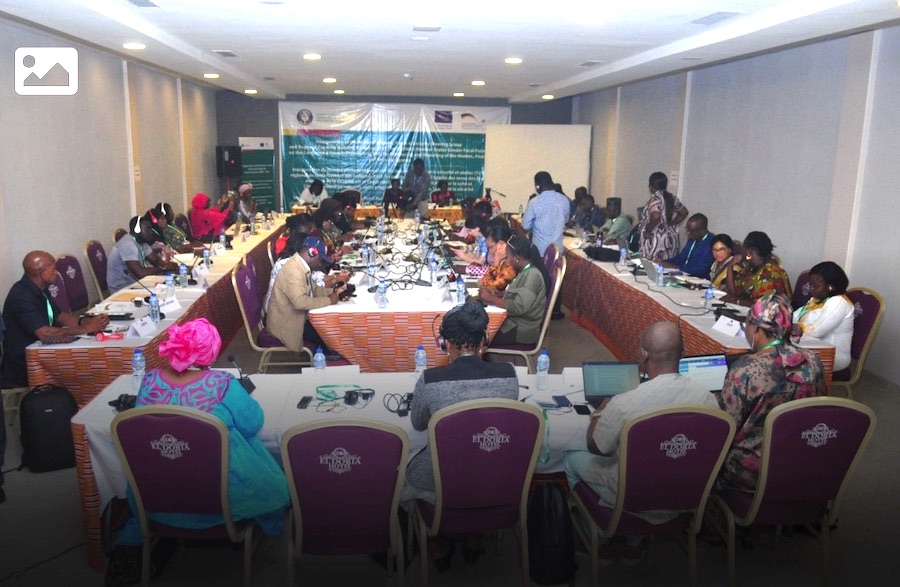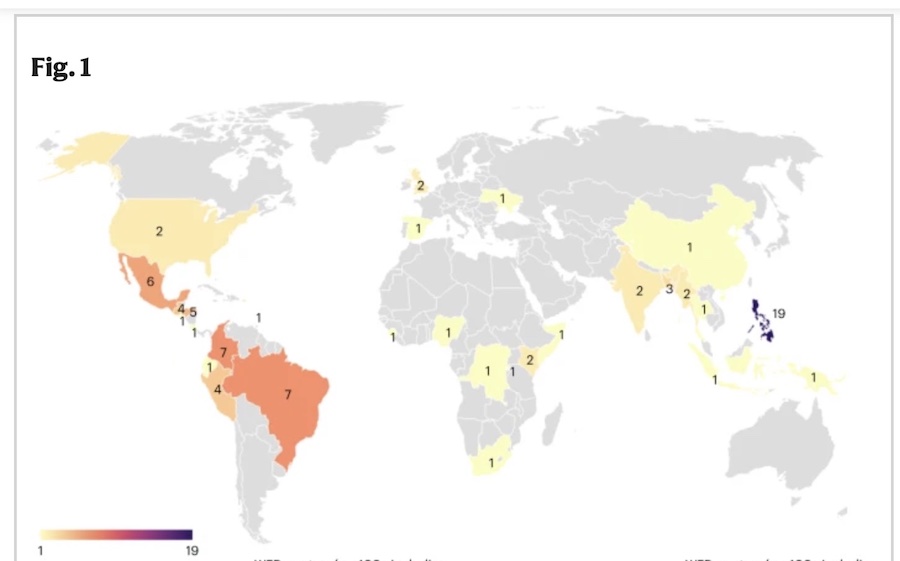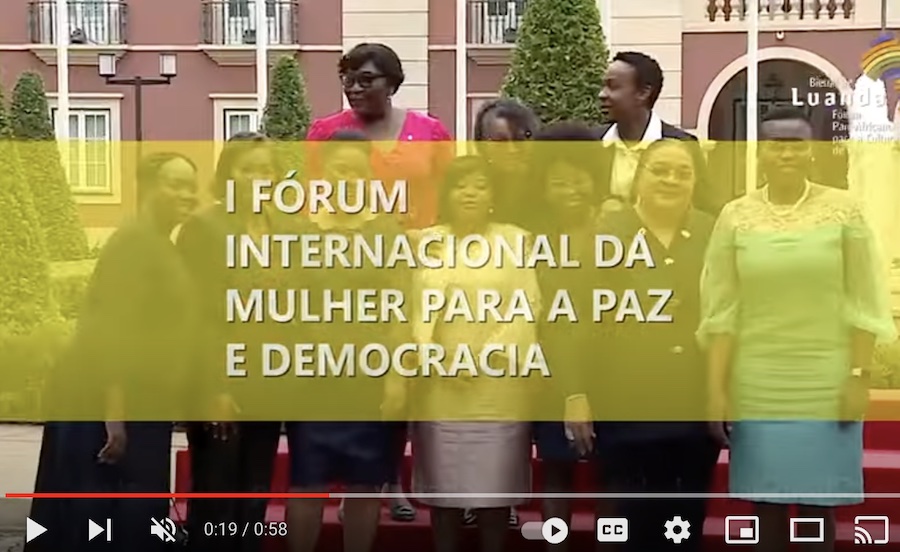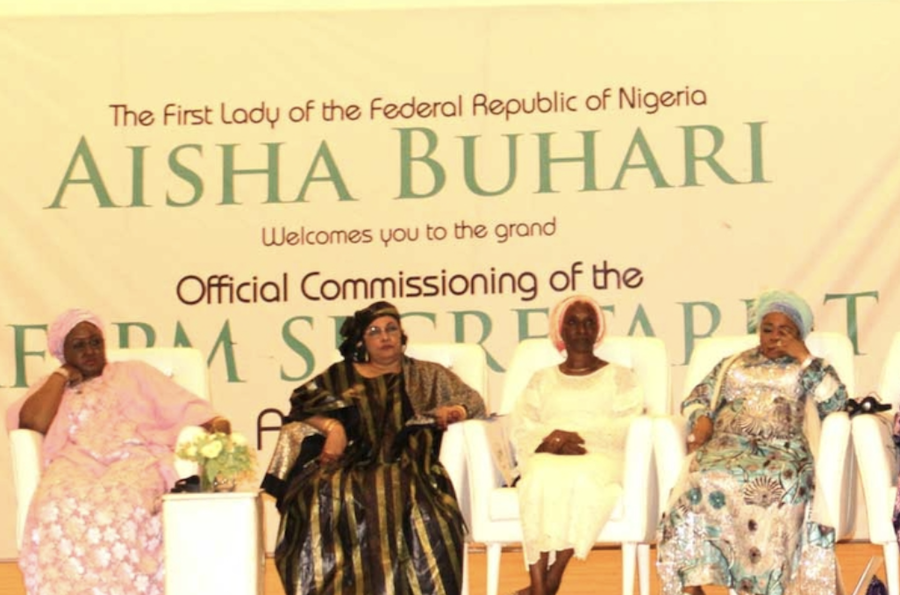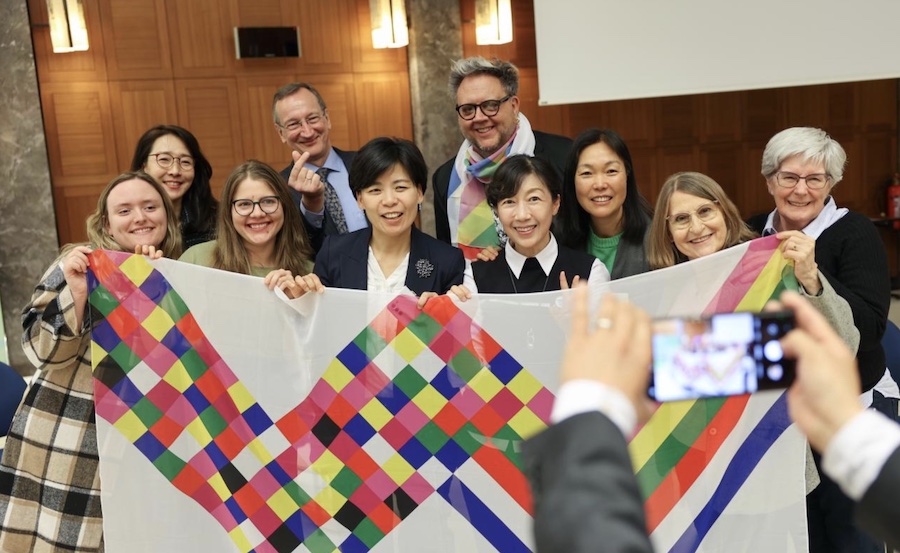. WOMEN’S EQUALITY . .
An article by Ridhima Shukla in Forbes Africa
Attendees at the just-concluded Women Deliver 2023 Conference in Kigali exchanged ideas and experiences through thought-provoking discussions that set the stage for the unveiling of new and transformative policy frameworks supporting women’s rights and issues.
In the heart of Kigali, Rwanda, the BK Arena and Kigali Convention Centre buzzed with excitement as women from all corners of the world gathered for the Women Deliver 2023 Conference (WD2023), from July 17-20, held for the first time in Africa.
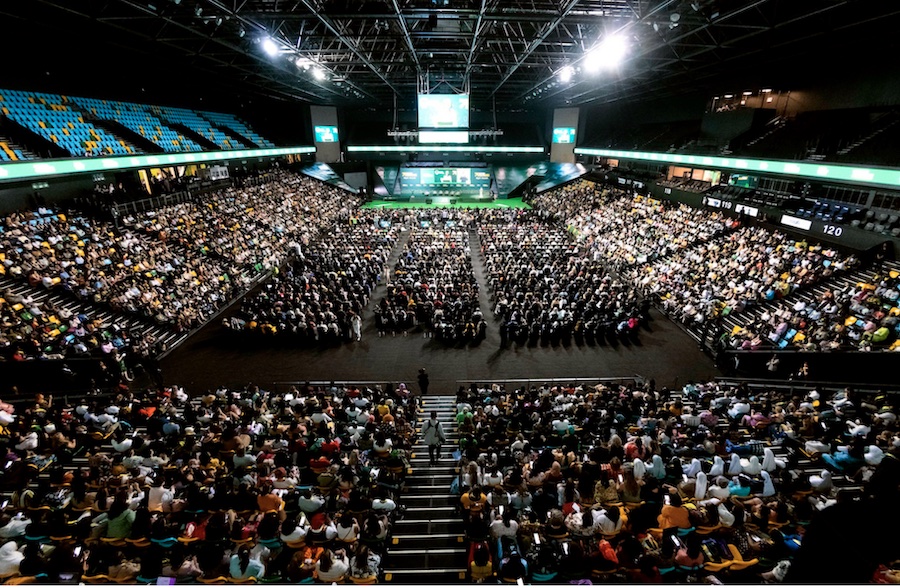
The Women Deliver conference witnessed participation from over 6,000 stakeholders and advocates dedicated to advancing gender equality. Photo: UN Women/Emmanuel Rurangwa
Held under the theme, Spaces, Solidarity, and Solutions, the sixth Women Deliver Conference aimed to ignite collective action, empower the feminist movement, and foster a world where gender equality and women’s rights thrive.
A wide range of topics, including abortion access, LGBTIQQ rights, gender-based violence and impact of the climate crisis on women and girls, were discussed, along with focus on fostering youth engagement and elevating the perspectives of young women in the global gender equality movement.
The event saw an impressive turnout with thousands in attendance. Notable speakers included renowned personalities such as activist Malala Yousafzai. Also in attendance were four heads of state including Rwanda’s President Paul Kagame – with his wife and first lady Jeannette Kagame – Ethiopia’s President Sahle-Work Zewde, Senegal’s President Macky Sall, and the President of Hungary, Katalin Novák.
One of the most significant announcements came from the collaboration between Women Deliver and Open Society Foundations, a grant-making network founded and chaired by Hungarian-American business behemoth and philanthropist George Soros.
Together, they unveiled a new funding facility to address, among other things, neglected areas of female sexual health and reproductive rights. The room erupted in applause as the audience recognized the potential of this facility in empowering marginalized women and girls who have long been denied access to basic healthcare.
As the conference progressed, it became evident that the commitment to drive change extended beyond the arena’s walls. More than 40 organizations came together to launch a powerful campaign addressing the gender nutrition gap. Their collective call urged governments to take transformative action, shining a spotlight on the stark inequalities that persist globally in women’s and girls’ nutrition.
Another momentous step forward was the unveiling of the RESPECT Women website. Developed by the World Health Organization (WHO), UN Women, and United Nations Population Fund (UNFPA), this policy framework and online platform has been designed to combat and respond to violence against women and girls. The website’s potential to create a safer environment and promote gender equality and women’s empowerment was met with resounding support and recognition.
(continued in right column)
Prospects for progress in women’s equality, what are the short and long term prospects?
(continued from left column)
Perhaps the most moving moment at the conference was when UNFPA introduced Kigali Call to Action: United for Women and Girls’ Bodily Autonomy. This powerful call placed bodily autonomy, reproductive rights, and gender equality at the core of the agenda. With a clear focus on women-led organizations and the feminist movement, the call aimed to drive coordinated and collective action towards gender equality by 2030.
The conference’s commitment to empowering future generations was expressed with the launch of the Women Deliver Emerging Leaders Program to provide young people with trust-based funding, knowledge, resources, and leadership opportunities in the pursuit of gender equality and reproductive health advocacy. As the torch was passed on to the next generation, the attendees celebrated the potential of these emerging leaders to create a lasting impact on the global stage.
Throughout the conference, attendees engaged in thought-provoking discussions, exchanging ideas and experiences, leaving no stone unturned in their quest for progress. Challenges were acknowledged, and the urgency to address them collectively was clear.
The importance of funding for gender equality advocacies resonated strongly among the attendees. Julia Fan, Senior Manager for Youth Engagement at Women Deliver, emphasized that funding remains a critical aspect in driving forward the agenda for gender equality and women’s empowerment.
Alongside the vibrant discussions and inspiring stories of progress, Soraya Hakuziyaremye, the Deputy Governor of the National Bank of Rwanda, too offered valuable insights. She acknowledged the strides Rwanda has made in promoting women to leadership positions, highlighting that this progress did not happen overnight but has been the result of extraordinary leadership that recognized gender equity as a vital indicator of the nation’s progress, almost three decades ago.
While there were successes to celebrate, Phumzile Mlambo-Ngcuka, the Board Chair of Women Deliver, also addressed a pressing concern shared by many attendees.
She remarked: “What concerns most women today here is that progress in gender equality has been slow and uneven, and a major space where all countries have failed is violence against women. It is sad to sit and talk about this here again; I was talking about this 10 years ago.”
While gender issues still persist, efforts to combat them also have a history, starting with the Beijing Declaration in 1995 that opened the door for women’s issues to find mainstream recognition globally, leading to the Platform for Action adopted unanimously by 189 countries. In the words of Mlambo-Ngcuka, “it was a defining moment when women’s rights received the status of human rights”.
The development and acceptance of the Maputo Protocol on Women’s Rights in 2005 has also come a long way. The protocol has one of the highest number of ratifications for an instrument in the African Union (AU) and has objectively established a uniform basis for protecting the rights of women and girls in Africa. Forty nine of the 55 AU member states have signed the Maputo Protocol thus far.
Reflecting on the week’s transformative experience. Rania Dagesh, the Deputy Regional Director for eastern and southern Africa at UNICEF, expressed her sentiments: “The past week at Women Deliver has been phenomenal; there have been moments of reflection, profound exchanges, and valuable learning. I am truly grateful for participating.”
As the final moments of the conference unfolded, the atmosphere was one of hope, determination, and camaraderie.
(Editor’s note: For another perspective on the conference, see UN Women Executive Director visits Rwanda, applauds remarkable progress on gender equality and women’s empowerment.)


